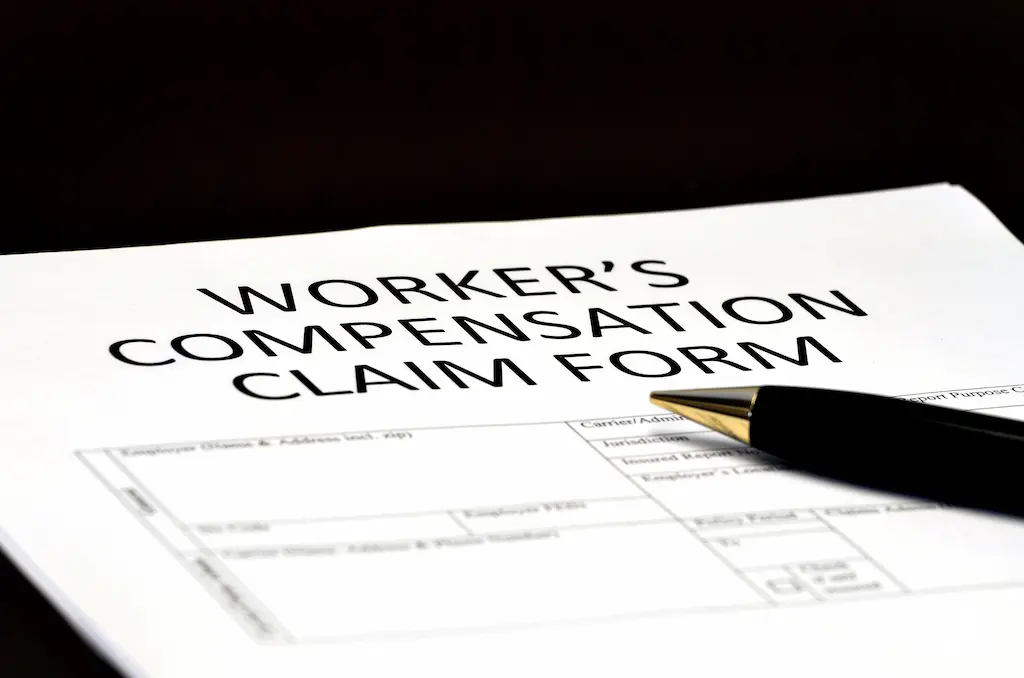Don’t Make These Common Workers' Comp Deposition Mistakes
By Kenton Koszdin on April 10, 2023 | In Blogs
A workers’ comp deposition in California is one of the integral steps in settling a claim. Your employer’s insurance company may likely require you and other witnesses and interested parties to undergo a question and answer session administered under oath before they approve the worker’s comp benefits.
Alternatively, if your claim is denied, a deposition is a necessary part of your worker’s comp lawsuit.
Unfortunately, many workers unknowingly make a challenging situation even more complicated by making missteps when answering questions. If you are facing a workers’ comp deposition, it is essential to learn more about common missteps that your worker’s comp attorney will prepare you to avoid.
What Is a Deposition in Workers Comp Case?
A workers’ comp deposition is sworn testimony under oath — just like testimony in a courtroom. A court reporter records everything said and provides both sides with a transcript. Both your lawyer and the other party’s lawyer will ask you questions.
A deposition is part of the discovery process of a civil trial and may also be required by your employer’s insurance company to pay benefits. You have the chance to tell your side of the story and how your injuries affected your life.
Your lawyer may gather evidence to use by asking other people questions about your employer’s safety policies, how often equipment is maintained, or what factors contributed to your injury.
The Workers’ Compensation Process
Although a deposition is a standard part of investigating a worker’s compensation claim, most plaintiffs are understandably nervous about what to expect at a deposition. Knowing what to expect during a deposition can help you remain calm.
Before the Workers’ Compensation Deposition
Many questions are fairly standard during a deposition, like what you were doing at the time of the accident, who was around, and whether your actions were part of your assigned job duties. Your lawyer will prepare you beforehand.
There may be questions specific to your case that your lawyer asks. Although an attorney cannot tell you what to say during a deposition, they can advise you how to phrase your answers so that you sound earnest and credible. Part of the preparation is also refreshing your memory of the incident.
During the Deposition
Answer all questions honestly, but you don’t need to elaborate unnecessarily. The defendant’s lawyer may try to confuse you by asking the same question differently, looking for inconsistencies. You are under oath, so you could face perjury charges if you lie. Finally, speak clearly so the court reporter can transcribe properly.
Common Topics Covered in Workers’ Compensation Deposition
Common deposition questions in a California worker’s compensation suit may include:
- General information about you, like your name, age, and occupation;
- Any prior illnesses or injuries;
- Any other work-related injuries prior to the injury in question;
- How your accident happened or how your chronic condition developed;
- Your current limitations at work or mobility restrictions.
You will also be asked about the medical treatment you received after filing the claim, including right after the accident and any ongoing care, like physical therapy.
In order for your injury to be covered by your employer’s worker’s compensation policy, you must go to your designated doctor or medical center for treatment and follow all directives of the treating physician. You’ll be asked questions to determine whether you’ve been compliant with the doctor’s directives, which the insurance company may use to approve or deny your claim.
10 Mistakes that People Often Make During a Workers’ Compensation Deposition
In order to help you avoid sabotaging your own workers’ compensation benefits claim, here are the top 10 worst mistakes plaintiffs make during a deposition for workers’ comp. Following our workers’ comp deposition tips can help you successfully pursue your workers’ comp benefits.
It is very important that you practice what you will say and how you will respond to questions during a deposition before you are deposed under oath. The opposing attorney will likely be very skilled and may lead you down a path that is intended to trip you up.
Inaccuracies in your deposition testimony or contradictions between what you say in the workers’ comp deposition settlement testimony and what you say when you testify at trial can have a negative effect on whether you win the case.
While you will most likely review the following with your experienced workers’ compensation attorney, some common deposition mistakes to avoid in a workers’ compensation case include:
1. Demanding Justice
Workers’ compensation is simply a form of insurance coverage that provides financial compensation for an employee’s injury or illness suffered while on the job. However, pursuing your rightful benefits is not a way to punish your employer or make your workplace safer. Insisting on going to trial when a reasonable settlement has been offered because you want to seek justice will not increase your award and may turn the judge against you. If you want to file for punitive damages against an employer or co-worker, you will have to explore alternative legal options.
2. Refusing to Compromise
Reaching a workers’ compensation settlement requires negotiation and compromise. In many cases, it can take several appearances to get to trial, followed by a multi-day trial that can take months to complete. Your employer and insurance company inevitably will not want to pay any more than what they believe you deserve for your particular circumstances. Your attorney will use his or her legal expertise to determine what your case is worth and then fight to ensure that you reach the best possible outcome for your case.
3. Comparing Your Case to Others
Every case will have a unique outcome based on each injured worker’s circumstances. The amount of your settlement will be determined by your age, occupation, salary, and the type of injury or extent of permanent disability you have suffered. Other people may claim to have received a significant settlement for the exact same injury, but there can be any number of reasons that your particular case will differ. Your attorney will help you have realistic expectations for your case.
4. Threatening Your Attorney
You hired your attorney to represent your claim and to use his or her best legal judgment to support your best interests. Threatening your attorney that you will file a complaint with the State Bar or use violence in order to manipulate them is the quickest way to lose the experienced advocacy you need for success. Threats will generally cause your attorney to petition the Workers’ Compensation Appeals Board (WCAB) to leave your case.
5. Lying
Lying or withholding information will weaken your case and possibly get you into serious trouble. Your attorney needs to have a clear understanding of your situation, such as previous injuries and illnesses, in order to support your claim. If you do not disclose important information to your attorney, or lie while under oath, not only will it hurt your credibility, but you may even be investigated for insurance fraud or other felonies.
6. Being Vague or Forgetful
You are not expected to have a perfect memory, but the more specific information you can provide your attorney, the more he or she will have to build a strong case. If you suddenly can’t remember names, dates, activities, or other details, the less likely your chances for reaching a successful settlement.
7. Abusing Voice Mail
When leaving a message on your attorney’s voicemail, try to be as brief as possible. Always give your name, area code, and full telephone number with a quick message about what you would like to discuss during your next call or meeting. It will be easier for your attorney to get in touch with you from outside the office with this information, which will make it all the more likely that he or she will be able to contact you sooner.
8. Constantly Calling Your Attorney
Litigation can take a great deal of time and your attorney is likely busy with several cases that require him or her to make frequent court appearances. Unless it is an emergency, limit your calls to at least once per week. The process can be slow and your attorney may not have any new updates on your claim every day.
9. Not Showing Up for Depositions and Hearings
Not only will failing to appear at depositions or hearings waste a lot of people’s time, but it will greatly weaken your case. The judge may have your benefits stopped or simply dismiss your case altogether. If you are unable to appear at a scheduled deposition or hearing, tell your attorney immediately to reschedule.
10. Skipping Medical Appointments
A strong workers’ compensation claim requires plenty of medical evidence. However, if you do not go to the doctor your attorney has selected for you or you skip appointments before you are released, your case may be delayed or denied. Without sufficient evidence of your work-related injuries or illness, your workers’ comp attorney will not be able to adequately support your case.
Contact a Los Angeles Workers’ Compensation Lawyer
If you’ve been hurt on the job or developed a chronic medical condition over the course of completing your job duties, you may be eligible for worker’s compensation for medical care and lost wages.
However, if you’re having problems getting the coverage you deserve, one of the skilled California workers’ comp lawyers at Kenton Koszdin Law Office can help. Contact us today for a free consultation.









